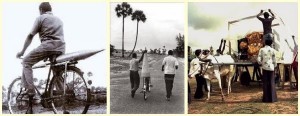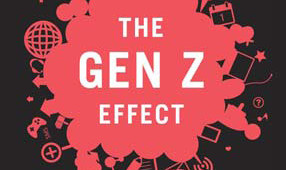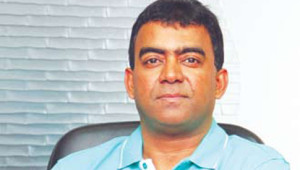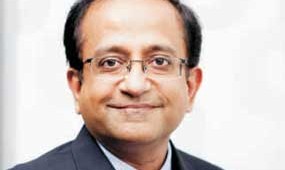 R Gopalakrishnan on how India is unique in many ways and why it is important for everyone to appreciate it.
R Gopalakrishnan on how India is unique in many ways and why it is important for everyone to appreciate it.
An American novelist Scott Fitzgerald wrote The Curious Case of Benjamin Button. It was set in the 1860s in Baltimore on Eastern Coast of the US. The story begins with a young couple Mr. & Mrs. Roger Button who were expecting their child. They had registered Mrs. Button to be admitted into the Maryland Hospital. Dr Keen was doing the needful. As Mr. Roger Button was pacing up and down, Dr Keen emerged from the room with a very strange look. Mr. Button rushed in with great anxiety and when he got to the room where the babies were kept, wrapped in the blanket, he saw a baby with an old man’s face, with sparse white hair. The rest of the story is about how, as the baby grew older, it started looking younger. There is only one nation in the world that fits the Benjamin Button metaphor and that is India.
As Sir Muhammad Iqbal the famous poet in the early part of last century wrote, there were four civilizations and only of them survives even today. The Egyptian Civilization, Persian Civilization, and the Confucian Civilization are all dead. The only one that is surviving now is the Indus Civilization. It’s a very old civilization and Indians love to recall how old it is without comprehending that we can’t go that far.
Democracy First
Political evolution in India is distinctive and enigmatic. In every other country you will find the evolution sequence where capitalism came first and democracy later. If you go back 200 years, whether in Europe or America, the concept of democracy was highly underdeveloped if not undeveloped. It was the industrial revolution in England that changed the dynamic and therefore capitalism was the first thing that happened to disrupt societies.
Franchise democracy came much later. Imagine that in the University of Cambridge in England, a woman could not borrow a book from the library until 1948. Women’s franchise came in Norway in 1930; UK in 1928, Greece a little later and Switzerland gave in 1971. Democracy has taken time evolving, that is the sequence every country has done it.
Yet, India, after many years of colonial rule, gave full franchise democracy right after independence. We inherited a system of constitutional liberalism. We had the concept of property for 150 years. Capitalism in India is only 20 odd years old from 1991. We seemed to have got the sequence completely jumbled up. India’s political evolution has been distinctive and unique, no one can deny that.
When you look at India’s economic evolution you will find a dissimilar pattern as well. In the classical sequence it is agriculture, infrastructure, manufacturing and services. India seems to have done some funny trick here. Here again there is a completely different sequence. It’s like Benjamin Button starting to shave only at the age of 60 – Our services sector has grown earlier than the manufacturing and infrastructure.
Cultural evolution
The distinctive point of India’s cultural evolution is that it has been accumulative and not transformational. This means every time a new culture came, it got added on as another layer and allowed to keep its own identity.
Judaism came first to India. Christianity also came to India – St. Thomas (Jesus’ disciple) landed in Cochin and roamed around in Kerala and Tamil Nadu. Islam came to India almost first from Sindh. Each of this came and stayed in its original, purest forms.
There were a few mutations though. The Catholic Church did not allow liturgies in any language other than Latin until 40 years ago, so we had a lot of catholic churches in India speaking in Latin. And after the Protestant movement came there are Tamil and Bengali liturgies.
In Western cuisine vegetables are mashed up used in hamburgers or potato cutlets – here the identity of the vegetables is quite often lost. Whereas in Indian cooking, like in avail (Kerala dish), or in mixed vegetable curry, the vegetables are still discernable and if it’s not then it’s not authentic.
Look at what Garibaldi did. When Italy was unified in 1800s only 2% population at that time spoke Italian in a particular way. Garibaldi said every Italian must speak one way and that’s how Italy was united with one language. Same thing happened in Germany.
Contrast it to what happened here. The Parsis have had their own way of living for 1000 years. There are Husseini Brahmins; they went to fight in Karbala when the imam’s grandson was assassinated. Where will you find this variety and differences? 95% of Chinese are Huns, they are homogenized. Even in the European Council, senior leaders like Tony Blair have expressed a view that unless they homogenize they cannot run this place, especially in fighting terrorism. In India, we make heterogeneity a virtue in itself. I don’t want to make a big deal out of it but just to point out that this has consequences. Every action any society takes has its unintended consequences.
I don’t regard India as a country of 1.2 billion people, I regard India as a society which has 3000 castes and sub casts of 400,000 each. Deep in its core the consciousness for matrimony, for practices of caste, we all know how intense it is. For example, there are only 250,000 people of my category in the whole world. It’s not only Parsis who are endangered!
What is it that holds the vegetable curry, what is the sauce? There is a lot of individuality in the way an Indian thinks and behaves. Not only do you see this in cuisine, you will find it even in music. Discipline and rigor makes are extremely important in Western music) but doing your own thing is the genius of Indian music.
Think in English, Act in Indian
What does the Benjamin Button effect mean when you do business on a day-to- day basis? The smartest guys from Harvard, MIT can articulate India’s problems with precision but you wonder why they can’t implement it.
The first distinctive thing that you find about Indians is that even though they think in English they act Indian. Ask every Indian who sits in a HR meeting and says merit is the only reason for advancement to make a decision between a 45 year old and 55 year old. He will say ‘seniority.’ Every Indian will say integrity is not negotiable but ask him to sit on a case where there is a minor inflection of integrity; he will say ‘it’s not a very major thing.’ For the Anglo Saxon mind there is a very thin line between integrity and lack of it. For an Indian the thickness of the line is flexible.
India may not have had the hard power, but has enjoyed a huge soft power throughout the world. When I was doing my engineering there were three stellar personalities, the first was the late Pandit Ravi Shankar who was just a sitar player. But the moment he got to work with the Beatles, he became an icon. In the same year, BVK Iyengar went to teach yoga in California, today, everywhere yoga is famous. M S Subbhalashmi was invited to perform in the United Nations General Assembly. These are the three great examples of export of soft power.
Our great ability to live with high-technology and to live in chaos comes naturally. For example, Dabbawala became famous because of a Harvard study, its six sigma certified, they carry 500,000 meals every day from the right wife to the right husband, keeping the divorce rate in Bombay down. We are unable to run our cities but we are able to set up a city for 12 million people for 6 weeks during the Kumbh Mela with good sanitation. It is much better conducted than HAJ. How are we able to achieve this without a computer?











Recent Comments